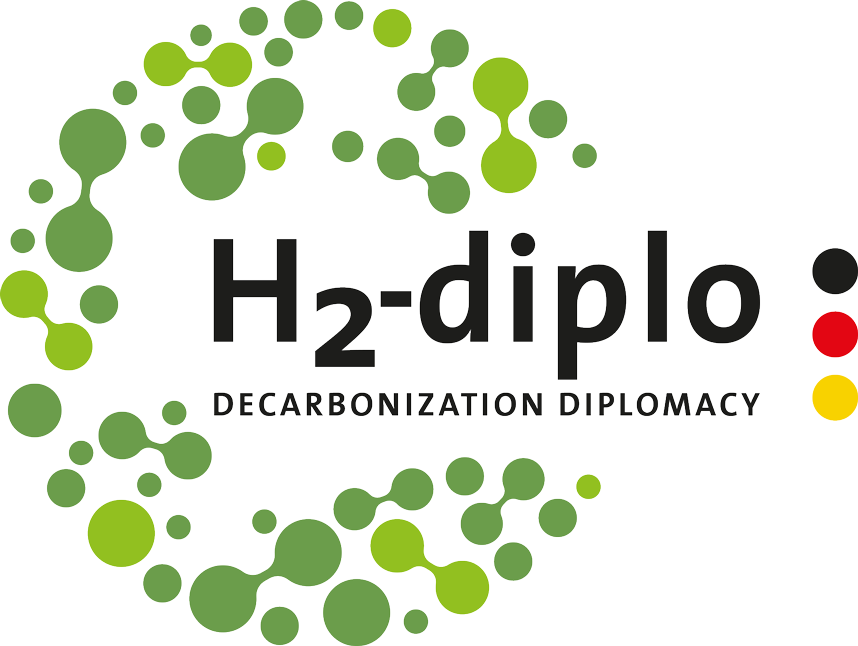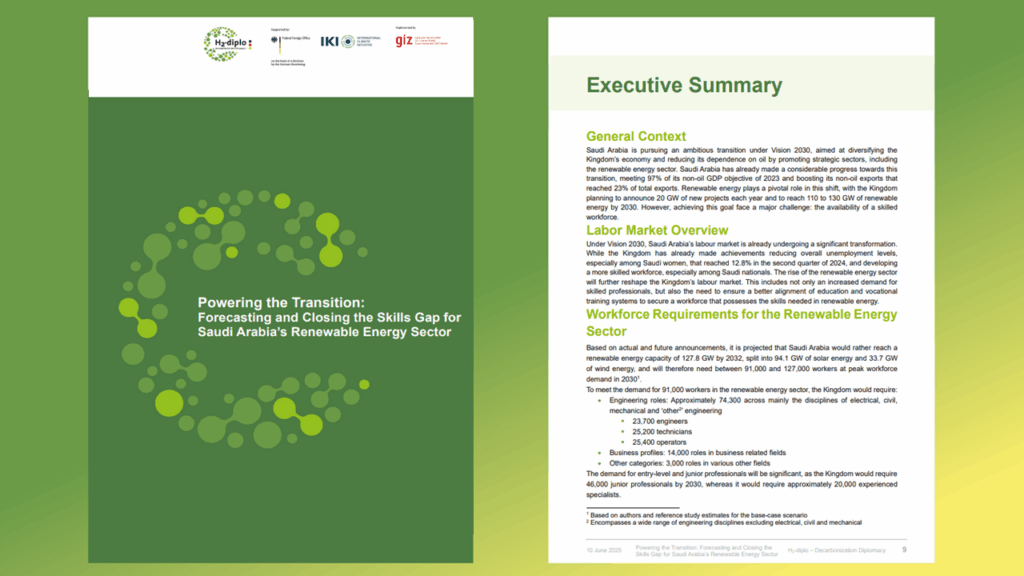The study “Powering the Transition: Forecasting and Closing the Skills Gap for Saudi Arabia’s Renewable Energy Sector”, published by H2-diplo, offers the first comprehensive assessment of labour market requirements in the context of the Saudi-Arabian clean energy transformation. It identifies workforce bottlenecks and outlines strategies to align human capacity development with the ambitious targets of Vision 2030.
As Saudi Arabia moves to install up to 130 GW of renewable energy capacity by 2030, the study estimates that between 91,000 and 127,000 skilled workers will be required to meet demand. Most of these positions will fall into engineering-related fields, including electrical, civil, and mechanical disciplines, with 46,000 junior roles and 20,000 experienced profiles needed.
Importantly, the analysis finds that attracting graduates into the renewable energy sector will require dedicated policy action. In several engineering disciplines, the majority of graduates are currently absorbed by other industries. The study calls for the development of targeted training pathways, the reskilling of workers from related sectors, and international cooperation to bridge shortfalls.
The study also notes that domestic participation is growing: by 2030, over 29,000 Saudi nationals are expected to work in the sector, with the share of Saudi nationals projected to rise to 45% by 2032. Moreover, renewable energy component manufacturing could add another 11,000 jobs, offering further potential for green industrialisation.
As a key contribution to the national energy transition debate, the report supports evidence-based planning and provides concrete recommendations for policymakers, training providers, and industry stakeholders alike.
Download the full report here.
For more news about the H2-diplo activities, follow us on LinkedIn: H2-diplo – Decarbonization Diplomacy | LinkedIn

